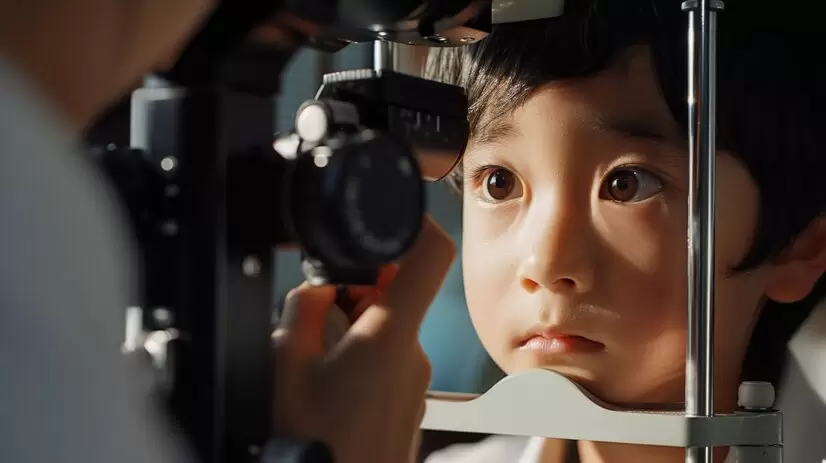Do you want to free your eyes from glasses or contact lenses forever? The methods of getting rid of glasses are more interesting today, because they improve the quality of life by solving vision problems from the root. In this article, we will talk about the most effective methods available to get rid of glasses, their benefits and who can choose these procedures.
What is Glasses Free?
Glasses relief is a general name for procedures that involve giving up the use of glasses or contact lenses to improve vision. These methods are usually performed through refractive surgery (eg, FEMTO-Lasik, LASIK, PRK, NO-TOUCH, SMILE). Refractive surgery corrects the cornea of the eye, ensuring that light is properly focused in the eye, which leads to the elimination of visual disturbances.

Ways to Get Rid of Glasses
- LASIK (Laser-Assisted in Situ Keratomileusis): LASIK is the most popular and widely used refractive surgery method. During this procedure, the surgeon lifts the corneal layer of the eye and reshapes the underlying layers of the cornea using an excimer laser. LASIK surgery is performed in a short time and recovery time is usually quick.
- PRK (Photorefractive Keratectomy): Unlike LASIK, PRK removes the epithelial layer on the surface of the cornea and reshapes the cornea with a laser. PRK is designed for patients with thin corneas or in certain cases where they are more suitable. Recovery time may be slightly longer than LASIK, but the results can be just as impressive.
- SMILE (Small Incision Lenticule Extraction): SMILE is one of the newest refractive surgery techniques. During this procedure, a small lenticule (piece of tissue) is removed inside the cornea using a femtosecond laser. SMILE surgery is less invasive and preserves the structural stability of the cornea more, which speeds up the recovery time.
- Refractive Lens Replacement (RLE): This method involves replacing the natural lens of the eye with an artificial lens. Refractive lens exchange is similar to cataract surgery and is usually used in cases of high myopia, hyperopia, or astigmatism.
The Benefits of Being Glasses Free
- Better Vision: Refractive surgery procedures effectively correct vision problems such as nearsightedness, farsightedness, and astigmatism by shaping the cornea or changing the lens. This gives you a clearer and more accurate vision.
- Convenience and Freedom: Eliminating dependence on glasses or contact lenses brings more comfort and freedom in your daily life. You will no longer face problems such as cleaning your glasses, changing contact lenses or dry eyes.
- Sports and Active Lifestyles: Glasses and contact lenses can pose challenges for people who lead an active lifestyle. Freedom from glasses allows for a more comfortable and unobstructed experience in sports activities, swimming, running and other active activities.
- Cosmetic Effect: For many people, the visual effect of glasses is a concern. Refractive surgery procedures help improve your personal appearance by eliminating the need to wear glasses.
- Long-Term Investment: Refractive surgery may seem expensive at first, but in the long run, it helps you save money on eye care products (like glasses, contact lenses, and their solutions).
Who Can Be Glasses Free?
The most suitable candidates for glasses exemption are:
- Persons over 18 years of age: Adults with stable vision are eligible for these procedures.
- Those with healthy eyes: Glasses-free procedures are more appropriate for individuals without serious eye diseases, infections, or co-morbidities.
- Women who are not pregnant or breastfeeding: Hormonal changes can affect the shape of the eye, so procedures are not recommended during pregnancy or breastfeeding.
- Those with suitable eye conditions for Refractive Surgery: Consult with your doctor to determine if you are a good candidate for the surgical procedure.
Risks and Side Effects of Getting Rid of Glasses
Like any surgical procedure, refractive surgery carries some risks. The most common side effects include dry eyes, flashes of light, halo effects, and night vision problems. However, these effects are usually temporary and disappear shortly after surgery. Your doctor will provide detailed information about the risks and benefits of this procedure and determine if you are a suitable candidate.
Preparation for the Glasses Release Procedure
If you want to be free from glasses, the first step is to consult an eye doctor. Your doctor will check your vision, assess the health of your eyes, and advise you on the procedure that is best for you. You should avoid contact lenses for a few weeks before surgery to allow your eyes to return to their natural shape.
The Future of Glasses Free
With the continuous development of technology, the methods of getting rid of glasses are also improving. Thanks to updated laser technologies, more precise surgical techniques and faster recovery times, these procedures are becoming safer and more effective. In the future, these procedures are expected to become more widespread and available to more people.
